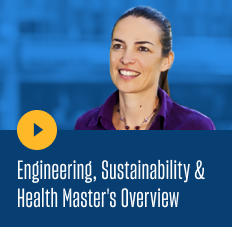If you’re interested in making a difference within the field of public health, you may find it rewarding to focus more on the health of a smaller community. Community health is about the specific health conditions of a regional area – such as a town or state – and understanding it requires recognizing communities as intersections of different concerns related to health care, economics, development, safety and education.
A Master of Public Health (MPH) degree is a popular area of study for improving community health; but because this field covers such a broad spectrum of concerns, there is really no one single pathway toward a career in community health.So, if you’re thinking of how to contribute towards a community, it can be worthwhile to look at the different areas of study in combination with the opportunities afforded by different levels of education. From there, you can plan out a possible career path and gain the experience you’ll need to make it happen.
What is Community Health?
Broadly, community health is the field of health care and health education that promotes wellness and health for communities and individuals within those communities. While general concerns about community health have existed across the world for centuries, the modern concept of public and community health arose during the 20th century with the establishment of health care agencies, facilities and providers that promoted the prevention of disease and illness, not just treatment.
In the U.S., the establishment of community health centers followed the civil rights and social justice movements of the 1960s to address the unmet needs of low-income communities that were at the highest risk of health crises. This awareness of just how vulnerable marginalized communities are to pervasive issues like low income levels, poor education, lack of resources and environmental exploitation has expanded the definition of what we mean by the term “community health.”
How does this affect what you can do with a community health degree? There are many different ways you can make a difference for communities, including:
- The promotion of good nutrition and healthy eating
- Educating and supplying protection from illness and disease
- Supporting rehabilitation from drug abuse
- Working for disability management
- Managing waste and water sanitation
- Facilitating physical wellness and exercise
- Enabling more access to medicine and doctors
Since many of these areas are interconnected, different professionals from a multitude of backgrounds, demographics and disciplines are now collaborating to further the cause of improving community health.
Areas of Study for Community Health
Depending upon the area that you’d like to work in, you have a choice of several different majors and concentrations related to community health:
- Health Science – This is the application of scientific principles to health solutions, mainly in collecting data and then analyzing how biology, chemistry and psychology impact health. Major areas of study include anatomy, disease transmission, health care systems and related topics.
- Public Health – This is a broad field of study, mainly focused on how scientific principles can be combined with civil sciences to benefit public health planning, especially in areas of family planning, counseling services, housing and health education. Areas of study range from basic health care administration to analyzing disease outbreaks and identifying trends in substance abuse.
- Health Informatics – This is mainly about how to effectively store and access health care information in order to better learn about the community, identify trends and facilitate communication. Areas of study include how to manage IT systems, health data analysis and means of tracking patient outcomes.
- Public Health Engineering – This is fundamentally about developing and maintaining a healthy environment within a community. Areas of interest range from larger considerations about meeting regulations and establishing safety parameters to specific tasks of evaluating sanitation levels, inspecting local health facilities and reviewing plans for new equipment. Areas of study include advanced mathematics, hydrology, mechanics, materials and engineering fundamentals.
- Nutrition – The area of nutrition and dietetics specializes in cultivating foundational knowledge on good eating habits and nutritional health and then educating communities on best practices. Relevant areas of study include food chemistry, metabolism, anatomy, agriculture and malnutrition.
- Health Education – This is mainly about how to effectively engage community members in understanding and adhering to healthy practices. Areas of study involve how to share knowledge, how to overcome psychological barriers, effective teaching strategies and communication skills.
If you’re wondering exactly what you can do with a community health degree, understand that it really depends on the degree that you attain. The community health jobs that you’re eligible for will be reflected by your level of degree; for example, the range of possibilities for a candidate with an associate degree will be limited compared to a one with a master’s degree in a field related to community health.
Join Us In the Fight Against Climate Change, Rising Inequity and Social Injustice — Download Meeting the Planet’s Most Urgent Challenges: Transforming Systems to Support Justice and Sustainability
Top 4 Community Health Careers with an Associate’s Degree
A shorter level foundational degree program than a bachelor’s, earning an associate degree will help qualify you for jobs within community health, and can also serve as a starting point for attaining higher level degrees.
Health Coach
Works to improve physical health of individuals within a community, addressing issues such as smoking secession, exercise goals or general health improvement. Earns a median salary of $47,000.
Research Assistant
Carries out the task of facilitating research projects, including evaluating, researching and planning parts of a study, assisting in assessment and establishing quality control. Earns a median salary of $39,000.
Wellness Consultant
Assesses an individual’s habits and lifestyles and then offers recommendations for exercise, nutrition and stress management. Earns a median salary of $56,000.
Patient Service Coordinator
Coordinates between a health care organization and patients, ensuring that they receive the best care possible by understanding their medical situation and the options available to them. Earns a median salary of $37,000.
Top 4 Community Health Careers with a Bachelor’s Degree
A bachelor’s is an undergraduate degree that covers the general study of math, science, history and language in coordination with introduction to planning, development and evaluation of community health. This degree is a necessary qualification for some jobs in community health and opens up more career options in education, government and nonprofit fields.
Health Educator
Teaches individuals and communities how to live healthier lifestyles, performs health training needs assessment and designs health education programs and curricula. Earns a median salary of $53,000.
Hospital Administrator
Plans, directs and coordinates health services within a hospital. Though they don’t deal directly with patients, they do handle services, budgets and relations with other organizations. Earns a median salary of $96,000.
Community Health Organizer
Connects patients with social services, building trust between health organizations and the communities they serve. Earns a median salary of $48,000.
Social Services Manager
Responsible for coordinating and supervising programs and organizations that promote public health causes and initiatives. Earns a median salary of $67,000.
Top 4 Community Health Careers with a Master’s Degree
A master’s is a higher level graduate degree for those seeking leadership positions or who want to work as specialists within their field. This is a more thorough study of health education, policy and research and can fall under different types of programs, including the Master of Science in Public Health (MSPH) or Master of Public Health (MPH) degrees.
Health Care Analyst
Gathers, analyzes and evaluates medical data, patient records, insurance claims and reports to make recommendations for improvements and enhancements to patient care. Earns a median salary of $74,000.
Substance Abuse Counselor
Provides treatment, education and counseling to people who suffer from alcoholism, drug addiction, eating disorders or other mental health issues. Earns a median salary of $41,000.
Biostatiscian
Responsible for collecting and analyzing public health data to measure factors that impact health and wellness, including the design of studies that test the efficacy of drug treatments and identify the sources of disease outbreaks. Earns a median salary of $127,000.
Research Coordinator
Supports, facilitates and coordinates clinical research trials, ensuring that all activities are in accordance with regulations, that all personnel are trained and that human research participants are protected. Earns a median salary of $52,000.
Top 4 Community Health Careers with a Doctorate
Achieving this level of degree involves performing extensive research and engaging with the scientific and academic communities. Tracks include Doctor of Public Health (DPH or DrPH) for those seeking to lead programs and policies, Doctor of Health Science (DHS or SHSc) for those focused on research or clinical studies and Doctor of Philosophy (PhD) for educators or those looking to assist in turning theory to practice. These positions often provide guidance to major organizations and governments regarding important health issues.
Health Scientist
A scientist whose area of research focuses on public health matters, with a specialization into fields that can include microbiology, epidemiology, mental health, environmental health and health care administration. Earns a median salary of $91k.
Public Health Advisor
Coordinates health care institutes and organizations to ensure that health care systems are following proper health codes and safety measures. Earns a median salary of $62k.
Health Specialties Educator
Teaches college and university courses in health specialities, which can include medicine, pharmacy, public health, therapy and dentistry. Earns a median salary of $124k.
Research Director
Oversees an organization’s research and development, supervising team members, hiring staff, producing reports on the progress and outcome of the research projects. Earns a median salary of $110k.
All salary figures sourced from Glassdoor and BLS as of December 2021.
These 12 positions are just a sample of possible careers if you’re interested in working in the field of community health. In general, higher level degrees will provide you with the knowledge and skills required to work in specific areas and take higher level leadership positions. There is a trade-off, however, as some higher level positions tend to be less “boots on the ground” and less connected to the communities that they serve.
If you’re determined to build your skills and knowledge to provide real assistance to local communities, then consider a master’s degree that works across disciplines to enact real change for communities.
Want to Make a Difference in the World? Start with Our Free eBook: Meeting the Planet’s Most Urgent Challenges
Addressing Community Health through the Master of Science in Engineering for Sustainability and Health
The University of San Diego’s Master of Science in Engineering for Sustainability and Health (MESH) degree focuses on critical approaches to solving health and environmental problems through innovation and sharing knowledge across disciplines. As a result, MESH graduates are well positioned for leadership and managerial positions in areas concerning energy, water, humanitarian aid, corporate social responsibility and international/global development.
The MESH degree program is designed to benefit those who wish to leverage their skills and experience for greater upward mobility in their profession as well as those who are driven to create and manage their own organizations for greater equality and wellness. The program aims to empower those who are passionate about becoming value-driven, critical change-makers for communities.
If you aspire to a career that involves making a real difference at the intersection of public and community health, then we invite you to learn more about our program.




